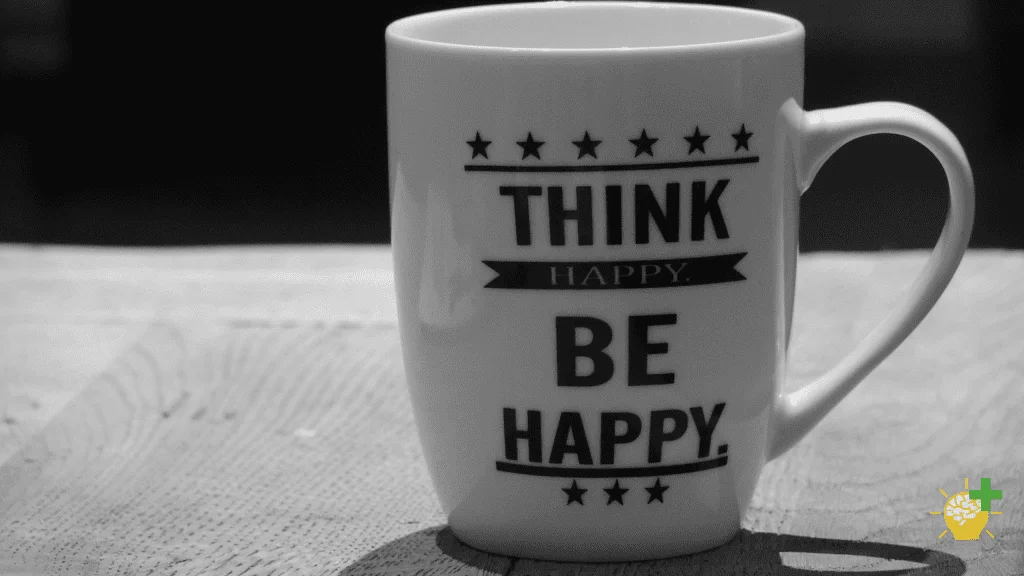You can’t be everything, no matter how hard you try. Of course, you already know this.
But what many people tend to forget is that there will always be someone who has more of something than them, whether it is a quality (intelligence or charisma), physical trait (body shape or beautiful face), or material possession (money, houses).
Once we forget this fact, we find ourselves drowning in the emotion of envy.
Like resentment (described as anger turned inward), envy can torment us and keep us from living a truly happy life.
How do you stop yourself from being envious? Is it possible to not feel envious ever again in your life?
Completely ridding yourself of envy might not be practical because, like anger and happiness, envy is a part of human emotions. However, you can harness the emotion and use it to motivate yourself to be better.
Keep reading if you want to know how to stop being envious and leverage the emotion for a more positive outcome.
Are You Envious? Here’s How to Tell

First, let’s clarify what envy is by painting two hypothetical scenarios.
Example 1: Your friend recently bought a house, and you wish you could do the same. Is that envy? Not necessarily.
Example 2: Your co-worker got a raise, and you wish it happened to you instead to the point that their achievement bothers you. Now, that’s envy!
Here’s how I define envy: it is a negative feeling that occurs when you want a tangible or intangible thing that someone else has but you don’t have.
However, envy isn’t necessarily malicious.
Wait, what?
Yes, envy is usually a negative emotion, but it isn’t necessarily a hostile feeling toward the owner of the material or immaterial thing that triggers the emotion.
In fact, envy can be used as a form of compliment. For example, when you say, “You’ve done very well for yourself, I really envy you!”
But when you nurse hostile feelings such as bitterness or resentment toward the other person who has something you want or don’t have, it is jealousy.
Although people tend to use envy and jealousy interchangeably, they are slightly different.
Envy is a combination of discontent and some degree of admiration. However, the feeling becomes destructive when dissatisfaction with someone else’s trait, possession, achievement, or success makes you resent them or feel like you’re competing with them.
The emotion of envy can easily become jealousy, although you can be envious without being jealous.
For example, you have a regular job, a normal (mostly boring) life, and a not-so-attractive body (by society’s standards). On the other hand, your friend has a highly successful career, a supermodel body shape, and gets to travel the world at will.
You could be envious of her physical traits, accomplishments, and achievements without feeling bitter or resentful. You would like to have similar possessions and experiences as her, but you don’t, so you feel envious.
However, if your attractive friend gets too close to your spouse (even if she means no harm), your envy can quickly turn into jealousy.
Here are some signs to know when you are envious:
- You feel unhappy when another person is successful.
- You are somewhat pleased when another person faces setbacks.
- You feel a strong urge to discount, discredit, or diminish another person’s accomplishments.
- You are quick to harshly judge others, especially when they accomplish something you’ve always wanted but don’t have.
Okay, now that we understand what envy really is and how it differs from jealousy, let’s briefly talk about why it is bad for you before delving into how to stop being envious.
Envy Is Bad for You: Here’s Why

While dissatisfaction can drive us forward and upward, envy tends to propel us horizontally.
Other people’s success can motivate us to further stretch ourselves if we admire what they’ve accomplished. However, it is usually difficult to positively harness a feeling of discontentment if you feel envious of others.
Here’s how you might be potentially shooting yourself in the foot if you allow this negative feeling to get the better of you.
Envy Keeps Your Focus on Your Shortcomings
Instead of focusing on how to be better, envy keeps your focus only on your perceived inadequacies. You’ll be quick to find excuses for why you are not as successful as others.
That’s another way of saying that envy traps us in low self-esteem and self-pity. For example, if you are envious of a co-worker, you subconsciously admit their superiority and your inferiority.
You may color your feelings of inferiority with thoughts such as “I don’t know why he’s always lucky, and I’m always missing all the great opportunities” or something along that line.
This type of thinking prevents you from improving yourself (moving forward and upward). Instead, it keeps you going sideways – focusing on excuses and justifying your perceived ill-luck, even though it doesn’t make you feel any better.
Here’s another way to say this: envy makes you feel like a victim!
Envy Robs You of True Happiness
Another harmful effect of envy is that it drains your energy and passion for life and leaves you in an unhappy state.
Think about it for a minute: can you truly feel happy and envious at the same time? That’s not possible.
Envy feeds the belief that your unhappiness is somewhat connected to what someone has that you don’t have.
The emotion tricks you into thinking that you will only be happier, more fulfilled, or better off when you have that thing the other person has.
But this type of thinking is not true.
You can be truly happy without something anyone has, but this realization only comes when you shift your perspective to a more optimistic one. Need help shifting your attitude to a more optimistic one? Check out this post.
Extreme Envy Can Lead to Depression and Physical Health Issues
Research has linked high levels of envy to unpleasant effects on mental health. According to the research, people with extreme envy are more likely to experience dejection, leading to depression in the long run.
That’s not too surprising, considering that negative emotions can choke the life out of you, and holding onto them for long can eventually result in some form of mental health issues.
But it gets even worse.
Extreme envy often leads to jealousy, and that’s when you’re more likely to experience physical health issues.
High levels of envy or jealousy can affect:
- Your appetite, making even the most delicious meal tasteless to you.
- Your heart, leading to heart disease and hypertension if the negative feeling is left unchecked for a long time.
- Due to the continuous spiking of your blood pressure and racing of the heart, your sympathetic nervous system is caused by the stress of extreme envy and jealousy.
Tips on How to Stop Being Envious

You can stop being envious, no matter what. After all, it is not a disorder. Realizing that you can control envy (and any other emotion) is the first step toward putting a leash on the emotion.
That said, the following practical tips can help you put envy under check and boost your chance of having a happier life, regardless of what others have or what you don’t have.
Emulate Success
Remember that envy combines discontent and admiration. Instead of letting the discontent drive you into reacting negatively, be motivated by admiration and see others as examples rather than rivals.
Emulation inspires you to be better – to rise above your current circumstances – without competing with anyone.
Whenever you catch yourself thinking that someone else is superior, recognize the thought for what it is (inferiority that triggers envy) and halt that line of thought. See that person as a shining example and a reminder that what you want is possible and doable.
Count Your Blessings
One of the best things you can do when learning how to stop being envious is to focus on all the blessings and goodness in your life.
Often, we become envious of other people because we forget or take the blessings in our own lives for granted.
Here’s something I do almost every day that helps me keep envy and other negative feelings in check: I practice gratitude.
Of course, you may not have everything you want, but when you carve out time to count your blessing, it can shift your focus from what you don’t have to all the many blessings you enjoy.
Stop Comparing Yourself With Others
You are unique and too valuable to be like any other person. Once you realize this, you’ll give up any desire to compare yourself with anyone else.
In any case, you’ll hardly be objective when you compare yourself with others out of envy.
Why’s that?
Envy blinds you to all the positive traits and good things you have going for you and places your attention on your flaws and what you don’t have.
In other words, any comparison out of envy will be your worst side versus the other person’s best side. You’ll never feel pleased with the outcome, even though you are the judge, jury, and executioner in this case!
Avoid People and Situations that Trigger Unhealthy Competition
Speaking of comparing yourself with others, consider avoiding situations that put you in a position that compels you to compete with others unnecessarily.
If you find yourself easily envious of materialistic possessions, consider cutting back the time you spend on highly visual social media platforms like Instagram and Snapchat.
While there may be nothing wrong with these platforms, they expose you to people who flaunt their possessions, which can easily make others envious or feel “less than” if they don’t have those things.
Also, examine the habits of those around you. If someone is overly materialistic – always comparing the latest cars, fashion, or vacation spots, consider avoiding them or spending as little time with them as possible.
Seek out grateful people instead and spend more time with them. They will inspire you to focus on the goodness in your life rather than what you don’t currently have.
Be Generous
“Be generous” might not sit well with you if you are already feeling a lack in some way. After all, being envious means you don’t have something you want, so why should you give when you don’t have enough?
Here’s the thing.
Envy makes you feel dissatisfied, and that’s exactly the opposite of what you feel when you are generous. Generosity makes you feel fulfilled, whether you give money, skills, abilities, or time.
In addition to feeling fulfilled, making time for others and being there for them can help you live a healthier lifestyle.
While generosity might be challenging at first, making the habit a part of your life will help you find meaning, higher purpose, and fulfillment. Do this consistently, and other people’s possessions are less likely to trigger any negative feelings in you.
Follow Your Passion
A better way to get better at what you do (and hopefully get what you want) is to put more life into whatever you love to do.
Find what you love doing and invest your energy in it. You’ll be so busy getting better you’ll hardly notice what someone else has or doesn’t have.
Wrapping Up
What’s the number one lesson in how to stop being envious? Realize that you have the willpower to choose another feeling in response to someone else’s success apart from envy.
Consider emulating others rather than being envious of them.
If the thought of looking up to someone as an example of what’s possible puts you in a bad mood, there are still some kinks you need to work out.
The truth is that you’ll always have something that someone doesn’t have, and others will also have things that you don’t have.
Strive to be the best version of yourself but let go of envy to be more focused on your progress rather than being distracted by someone else’s journey.




